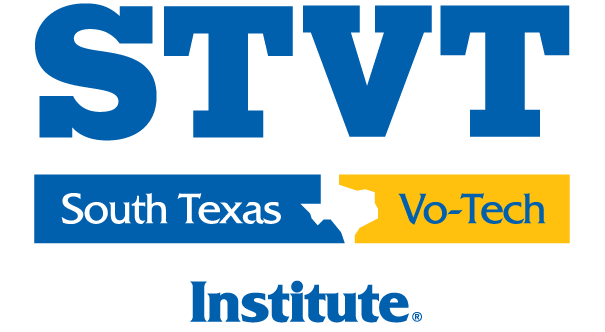In healthcare, not all heroes wear scrubs.
Doctors and nurses are often the most visible professionals in a clinical setting, but a big part of healthcare success depends on behind-the-scenes professionals.
Enter the medical billing and coding specialist.
At Southern Texas Vocational Technical Institute (STVT), the Medical Billing and Coding program is designed to train the next generation of these vital professionals who help keep medical practices running smoothly.
Let’s delve into the details of what this profession entails and what you can expect to learn in the program we offer at STVT.
What is Medical Billing and Coding?
Behind every hospital visit and doctor’s appointment is a system that makes sure healthcare providers are properly reimbursed in a timely and accurate fashion. That system? It’s built on medical billing and coding:
- Medical Coding involves translating diagnoses, procedures, and services into standardized codes. These codes help organize patient information, support research, and make insurance claims possible.
- Medical Billing uses these codes to prepare and submit claims to insurance companies or government programs, so that providers can receive the right payment at the right time.
Why are these twin disciplines so important? Because when combined, they’re the engine that powers a medical facility’s financial and operational health.
Errors can lead to denied claims, delayed payments, or compliance issues, making skilled medical billing and coding professionals an indispensable resource.
What’s Taught in a Typical Medical Billing and Coding Program
A strong medical billing and coding program combines technical knowledge, practical training, and crucial soft skills. From understanding the human body and learning coding systems to working with digital tools and communicating effectively, you can be exposed to the skills that can help you thrive in a healthcare setting.
Here’s a closer look at what you can expect to be taught as you prepare for a career in this nationally in-demand field.
1. Foundational Medical Knowledge
Before you can accurately code medical procedures or process insurance claims, you’ll want a solid understanding of the human body and how it functions. For that reason, most medical billing and coding training programs teach the foundational medical knowledge required to interpret clinical information. Topics you can expect to learn about include:
- Anatomy and Physiology. Learn about the body’s systems, how they function, and common conditions and diseases.
- Pathology. Understand disease processes, their impact on the body, and patient education basics (like explaining diagnoses in simple, clear terms)
- Pharmacology. Explore how medications affect the body, along with their generic and brand names, uses, and side effects.
2. Practical Skills and Knowledge
Healthcare administration moves fast, and practical skills are just as important as medical knowledge. That’s why medical billing and coding professionals frequently become proficient in skills that impact things from accurate claims processing to smooth office operations.
Practical skills and knowledge in the field you may develop include:
- Medical Terminology. Gain confidence in the language of healthcare to be able to accurately interpret doctors’ notes and clinical data.
- Medical Insurance Billing. Understand how to process claims for insurance providers such as PPOs, HMOs, and government plans. (You’ll likely practice filling out claim forms, verifying coverage, and resolving billing issues.)
- Hospital and Institutional Billing. Train for work in fast-paced environments like hospitals, where billing includes services from nurses, lab tests, imaging, and equipment.
- Healthcare Compliance and Regulation. Study key regulations like HIPAA and gain a strong understanding of ethical medical data handling.
3. Tools of the Trade
Success in the field of medical billing and coding involves getting comfortable with the tools that power modern healthcare systems. From coding manuals to navigating electronic health records and managing office workflows, these tools of the trade are a key part of achieving accuracy, efficiency, and compliance in today’s medical environments.
- Medical Coding Systems. You can learn to use the three main code sets: ICD-10-CM (for diagnoses), CPT (for procedures), and HCPCS Level II (for services and supplies)
- Electronic Health Records (EHR). You may work with digital records to accurately and securely manage patient data. You can learn how EHR systems help streamline coding and reduce claim denials.
- Medical Office Administration. You can build the skills to manage the daily operations of a medical office, from data entry and keyboarding to medical software use.
4. Professional and Soft Skills
In addition to technical knowledge, medical billing and coding professionals can benefit from strong soft skills that help facilitate accurate claims and smooth interactions with patients, providers, and insurers.
Skills that can help you stay organized, efficient, and effective in a fast-paced, detail-driven environment include:
- Communication Skills. Learn how to interact professionally with healthcare providers, insurance companies, and patients. You may also explore medical ethics, professionalism, and cultural sensitivity.
- Business Communication. Develop skills in professional writing, customer service, and handling complex billing issues through email, phone, or in-person conversations.
- Attention to Detail. In medical billing and coding, accuracy is everything. Mistakes can delay payments or lead to denied claims.
- Time Management. Benefit from being able to handle multiple tasks and deadlines in a fast-paced work environment.
Is Our Medical Billing and Coding Program Right for You?
Quality medical billing and coding training can go a long way in preparing you for success in this field, and STVT’s program can provide a solid foundation to successfully enter the workforce.
After learning about the STVT student experience, you might be wondering if this program aligns with your interests and goals. This educational path could be a good fit if you:
- Are interested in healthcare but prefer administrative roles to direct patient care
- Want to complete your training and enter the workforce quickly (in about 15 months)
- Appreciate hands-on learning with real-world applications
- Value attentive support throughout your education
- You are looking for a career field with strong growth
- Need flexibility to balance education with other life responsibilities
Begin Your Journey at STVT
STVT’s Medical Billing and Coding program helps prepare students to pursue careers in healthcare information across its Brownsville, McAllen, and Weslaco campuses. With a career-focused curriculum and dedicated support services, STVT can provide the foundation for students to succeed in this growing field.
If you’re interested in learning more about becoming a medical billing and coding student at STVT, contact us today at 866-480-9766 or fill out our information request form. Our admissions team is ready to answer your questions and help you take the first step toward your new career path.
Disclaimers: STVT cannot guarantee employment or salary. The jobs mentioned are examples of certain potential jobs, not a representation that these outcomes are more probable than others. Financial aid is available for those who qualify.
STVT does not guarantee third-party certification. Certification requirements for taking and passing certification examinations are not controlled by STVT but by outside agencies and are subject to change by the agencies without notice to STVT. Therefore, STVT cannot guarantee that graduates will be eligible to take certification examinations, regardless of their eligibility status upon enrollment.


